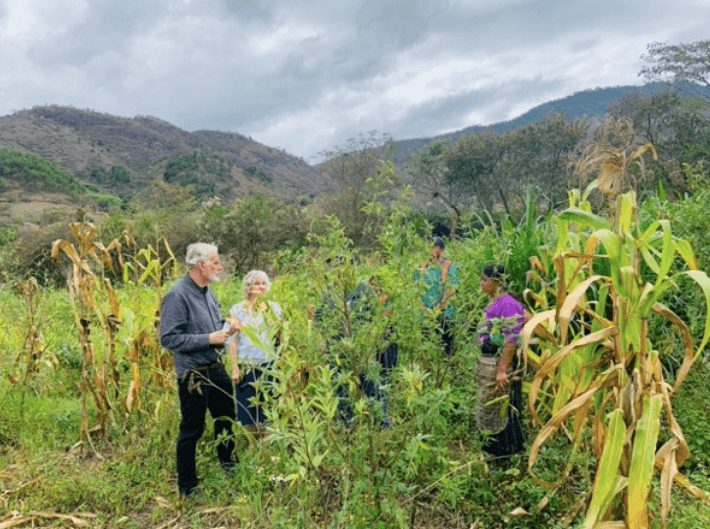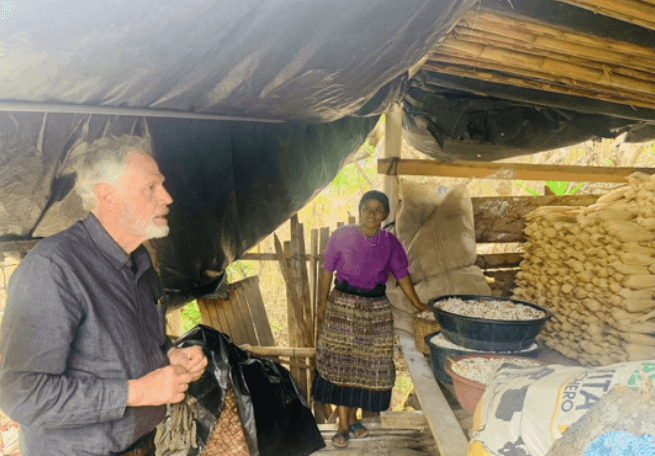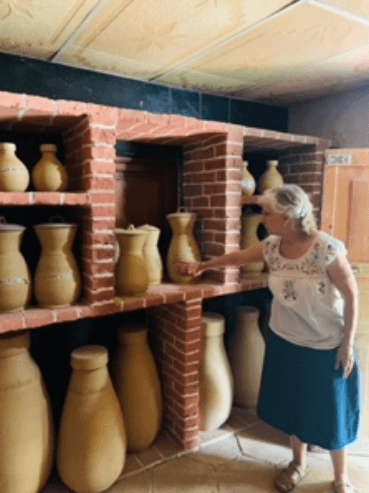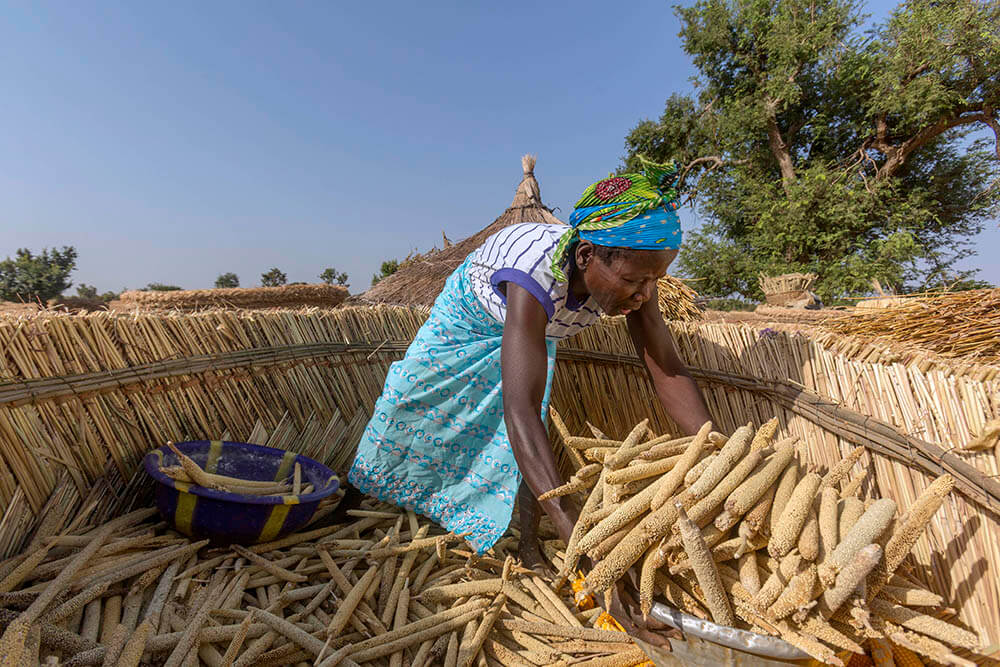By: Edwin Escoto
During my recent trip to some of Guatemala’s villages, I had the opportunity to witness how passionate the indigenous people (Maya Achi) are about preserving their native seeds, symbols of their identity, culture, and resistance.

I spent one week with my colleagues, Tim and Judelon Lasalle, trying to learn and understand how essential and strategic it is for the Mayan people to control their own seeds – essential because they can decide what type of seed they want to save and strategic because, through the native seeds, they can grow sustainable and healthy food. How closely their choice of seeds is related to their culinary preferences is especially interesting.
The Mayan people gave us important insights in terms of coexistence with nature and common goods. They call it the Milpa system, which consists of sowing different crops such as corn, beans, and pumpkins (known as the three sisters by the Mayans), medicinal plants, some edible herbs, and other crops which are beneficial to the whole system. All these plants can grow at the same time in the same plot. The Milpa system is also considered a seed sanctuary and plays an important role in saving and preserving seeds.
One day, we visited the community of Chiac, where Doña Silvia Sic lives. She is a co-founder and the current board president of Groundswell partner Qachuu Aloom. Doña Silvia grows corn, beans, and pumpkins in her plot, as well as some types of cover crops, like jack beans (Canavalia ensiformes) and some types of grass used for feeding cows. She harvests three times per year.

But how does Doña Silvia do that? She told us that she first understands that she has to take care of the soil because if we keep the life in the soil, we will grow healthy food and be healthy people. Doña Silvia implements some agroecological and cultural practices such as minimal disturbance of the soil, cover crops, integration of animals into farming, and native seeds. Additionally, she does not use synthetic fertilizers or pesticides. These practices allow the restoration and improvement of soil life. Doña Silvia also has a garden plot where she grows a lot of edible and medicinal plants.
Doña Silvia told us that she became a seed saver (Guardiana de semillas) because she knows that the native seeds are part of her identity and are a symbol of resistance for indigenous communities. The native seeds are sacred; we need to keep them and protect them as we protect our lives. Many more women like Doña Silvia are producing, sharing, and selling multiple species of native seeds.
Before we left Doña Silvia’s plot, Tim said:
“I would love to say thank you very much for receiving our visit. Cristobal and Edwin invited us to come visit, and we are very, very pleased we came. We very much are inspired by your hard work and your industrious efforts to create an income for your family, to grow food that is healthy without chemicals, and that, in fact, you become more innovative, creating more diverse and resilient production systems. We love that you are producing food that is more nutritious for people, making them healthier, and we love that you are integrating livestock and cows with your cropping system because that makes your food more nutritious and the whole system more resilient. Judelon and I just would like to say we are very pleased to be partners with you as donors first to World Neighbors and then to Groundswell in this effort to make lives better. So, thank you.”
Next, we headed to the Qachuu Aloom Training Center, where the organization has a small farm for showing different technologies of soil and water management and reproducing native seeds to share with more than 500 participating families of 31 communities in three municipalities (Rabinal, Cubulco, and San Miguel Chicaj) of Baja Verapaz. Qachu Aloom has named this place The Seed Sanctuary.
Our visit ended in the Seed House of Qachuu Aloom, which is part of their strategy to save native seeds for future generations. To do that, they are using pottery vessels, another legacy left to us by the indigenous Mayans.

To close our visit, Judelon offered some inspirational words to Don Cristobal, who is a co-founder and director of Qachuu Aloom. She said:
“We know that the ancestors brought us here, we know that our Mother Earth is where the ancestors live, we know that it was no accident that we met […] we thank the ancestors for making this possible today, we appreciate it and we are thankful for the healing of the earth and the ancestors’ presence today. Thank you.”
It was a fascinating visit to learn how passionate the people in this Mayan village are and to remind us that we have received the seeds from our ancestors to pass on to our daughters and sons as a guarantee for food sovereignty.
We want to thank the people we visited for inspiring us to be seed savers because recovering the relevance of the seeds is the most meaningful part of our work.
Learn more about Groundswell’s mission and our impact in this and other parts of the world.



